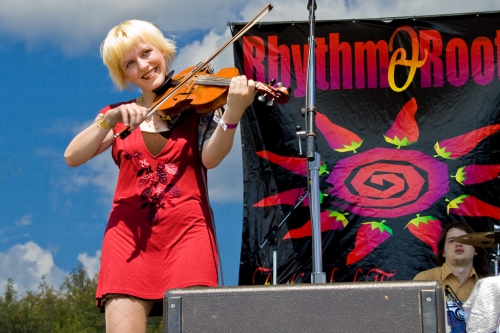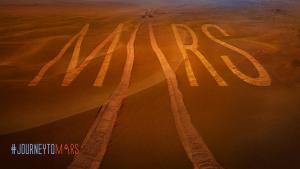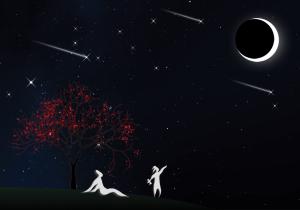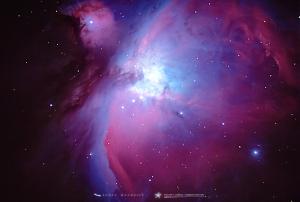
Summer Stargazing Nights - Rhythm and Roots
- Where:
- Frosty Drew Observatory
- When:
- Fri, Aug 30, 2019 6:00 pm - 11:30 pm
- Cost:
- $5 Suggested Donation per person 5 years and older
Tonight is the last Summer Stargazing Night at Frosty Drew Observatory for summer 2019, which coincides with the annual Rhythm and Roots music festival in Ninigret Park. Forecasts for tonight are looking fabulous with mostly clear to clear skies predicted for the first half of the night. Considering the that New Moon is occurring tonight, we will have super dark skies for the entire night to celebrate. Additionally, the annual Rhythm and Roots music festival is happening tonight, which will bring a lot of activity to Ninigret Park, home to Frosty Drew Observatory, including awesome music, lively visitors, and an increase in light pollution. Certainly a fabulous night to close out our Summer Stargazing Nights events for 2019.
Tonight, we will open the Observatory, Sky Theatre, and Science Center at 6:00 pm. In the Observatory courtyard, we’ll have our hydrogen alpha telescope setup on the Sun, offering fabulous views of the solar chromosphere. Have you seen the prominence that arch along the solar chromosphere? Well tonight is your last chance for a while because we close out our solar viewing program for 2019 after tonight. Once the Sun sets, we will direct our telescopes towards all the fabulous objects the dark night has in store. Jupiter is first up on our list with all four Galilean Moons in view. Shortly after, we will check out Saturn, which as been putting on a stunning show this summer with the rings looking so sexy! As the night progresses we will rock out with nebulae, star clusters, and an early season view of the Andromeda Galaxy. Depending on how late we stay, we may catch a first glace of the Orion Nebula for the 2019-2020 viewing season. We plan to close up at 11:30 pm, though could go much later if the sky and the music festival are rocking.
Overall, tonight is an interesting night. The sky and cosmos are totally set to rock, and we are lined up for a fabulous night. Though the Rhythm and Roots festival will make for a rather rowdy (yet awesome) night. Due to the intense influx of visitors to the festival, we will not have the Sky Theatre or Science Center open tonight, and facilities access will be limited to the Observatory building. Additionally, the Rhythm and Roots event is quite loud, will bring a lot of traffic, and will host numerous visitors that are quite excited. The Milky Way will be visible tonight, though the lights from the music festival will obscure some of the view. Regardless, if Blue Grass / Americana tunes are your gig, then swing by and have a fabulous night of music and the cosmos, and help us close out the 2019 Summer Stargazing Nights with a blast at Frosty Drew Observatory tonight.
A quick note about Rhythm and Roots for those of you who are planning to visit tonight. When traveling Park Lane inside Ninigret Park en route to Frosty Drew Observatory, you will encounter Rhythm and Roots parking staff. Kindly inform them that you are visiting Frosty Drew Observatory and they will let you pass. YOU DO NOT NEED TO PAY FOR PARKING OR ADMISSION TO THE MUSIC FESTIVAL! Additionally, Rhythm and Roots staff are unaware of the Frosty Drew Observatory schedule, so do not have them turn you away, always check for yourself if we are open or not. We always post a “Closing up” update to our Twitter (@FrostyDrewOBSY) when we decide to pack up for the night. If our last post does not mention us closing up, then we are still there. Be mindful of people walking in the dark and always be aware of your surroundings and those who are traveling with you.
-------------------------------
Weekly Happenings
Scott MacNeill
Hey K-12 teachers and educators, did you know that your students have a chance to name the Mars 2020 rover? Starting this past Wednesday, August 28, 2019, the contest to name the Mars 2020 rover is on. Until November 1, 2019, each student in your classroom can come up with a name and write a short essay (150 words maximum) about why their proposed name should be chosen. If the entries are submit before Nov 1, your students have a chance to win. The judging period will run from Nov – Jan, and will be based on three entry groups, designated by grade grade level (k-4, 5-8, 9-12). Judges will look for appropriateness, significance and originality, as well as quality of the accompanied essay. Fifty two semi-finalists will be selected from each group (one per US state / territory), with 3 finalists being selected from each group. The final selection process will happen in January 2020 with the chosen name being announced on February 18, 2020, one year before the rover will arrive at Mars. Teachers, you will need to sign up and create a class code for your students to register with, otherwise they cannot compete. Visit the Name The Rover Challenge page to learn about the competition and how to get your class involved. Who knows, you just may have the kid who names the next Mars rover, sitting in your classroom this year!
Tonight is the last event of our Summer Stargazing Nights program for the 2019 season. But this doesn’t mean that we are closing up for the year! The Frosty Drew Observatory will continue to open every Friday night through the autumn and winter, though our hours and offerings will change, just slightly. The most notable change will be the discontinuation of our solar viewing program, which happens at 6:00 pm every Friday from Memorial Day weekend thru Labor Day Weekend. Another change that will gradually happen will be less and less astronomers out each night as we move out of the “on-season”, which officially ends in early January. Starting next Friday, September 6, 2019, the Frosty Drew Observatory will commence our regular Stargazing Nights events, which open about 30 minutes after sunset. Once sunset starts occurring before 6:30 pm, we will open at 7:00 pm. Regarding our summertime Wednesday Stargazing Nights event, we are considering the possibility of continuing the offering through the autumn. Send us a reply to let us know if you think we should. We also have a few awesome special events lined up for the autumn season at Frosty Drew Observatory, including International Observe the Moon Night, Spooky Views - A Halloween Stargazing Experience, and The Transit of Mercury. You can keep up with upcoming Frosty Drew Observatory events at: https://frostydrew.org/events.
At Frosty Drew Observatory, our mind-blowing views of the Milky Way stretching overhead is a draw for thousands of visitors, whom descend onto the Frosty Drew campus every summer. But the Milky Way viewing season at Frosty Drew is quickly coming to a close, with our prime viewing season already well behind us for 2019. Though the Milky Way is not the only view that will blow your mind at Frosty Drew. Starting in autumn, the Andromeda Galaxy begins to rise over 45° in the ENE sky after sunset, eventually rising to zenith (top of the sky). Andromeda is the largest galaxy in the Local Group, a group of galaxies that the Milky Way galaxy is part of. The Andromeda Galaxy resides at about 2,500,000 light years distant, and is comprised of around 1 trillion stars. Andromeda is naked eye visible at Frosty Drew Observatory on nights with no Moon, and is the furthest celestial object we can see with the naked eye. The galaxy takes up about 6° of sky, or about the size of 6 Full Moons. As autumn starts departing New England, the stunning Orion Nebula starts to rise into the evening sky. The closest site of massive star formation to the Solar System, the Orion Nebula is a huge stellar nursery that resides at a distance of 1,400 light years, and is one of two naked-eye-visible star forming nebulae in the Northern Hemisphere. Views in the Frosty Drew telescopes will show fabulous wisps of hydrogen gas, alongside super bright blue newborn stars, which are lighting up and ionizing the hydrogen gas cloud. Though the summertime Milky Way is the big draw to Frosty Drew Observatory, those who have seen the Andromeda Galaxy or Orion Nebula at Frosty Drew will certainly speak to their greatness, a view that all should see at least once in their lives!
-Scott
Check out our page on Visiting Frosty Drew Observatory to learn more about what to expect at the Observatory and better help you prepare for your visit.
Please note that we do not allow any white lights on our campus from dusk - dawn. This is to ensure an equally awesome view of the night sky for all as well as to allow for the use of light sensitive astronomical equipment. Learn more about why we have this requirement in The Red Light District
We will be updating this event with our weekly announcement on the day of the event. The announcement will describe our plans for the night and what to expect regarding weather and astronomical sights.



